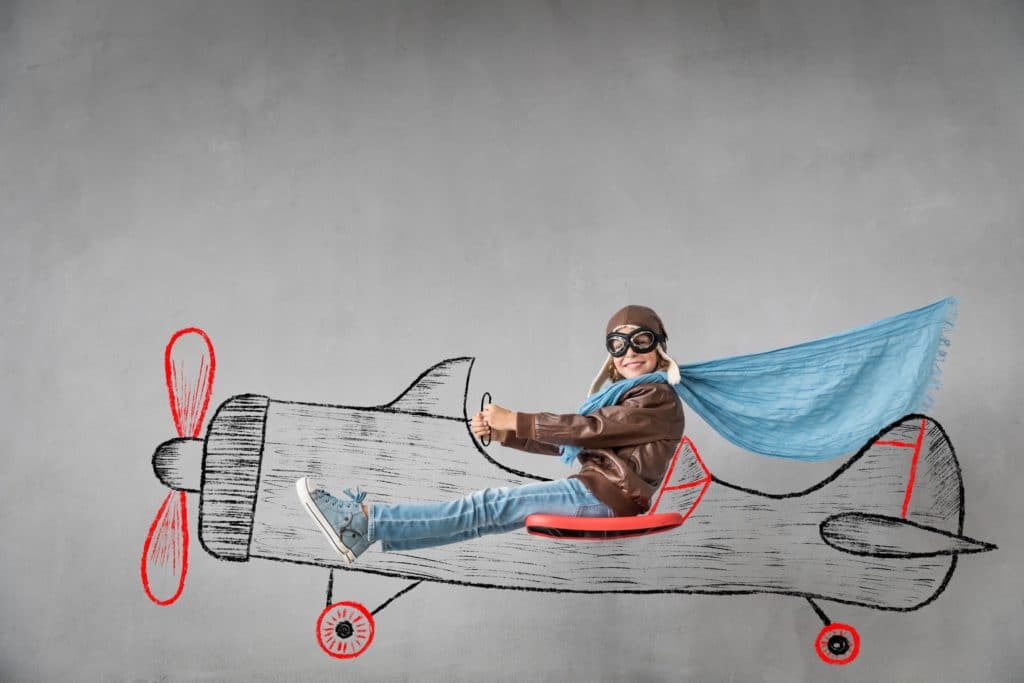- Attitude is not a defined term. It outlines our preferences with whom we interact in the environment inter-– in the Positive or in the Negative.
- A lack of inner attitude leads to the fact that people have problems in their social environment to navigate.
- Inner attitude is seminars in neoliberal Coaching is often equated with the brain-washing of the “Positive thinking”, so in order to deny negative experiences and perceptions. It means, however, to develop an inner compass that shows what is right and what is wrong.
- An attitude is shaped by life experiences, memory, values, norms and ethics.
Table of contents
What is an inner attitude is important?
Our attitude affects how we see objects, how we identify with other people or we dissociate myself from them. So we adapt to the social, without losing a sense of autonomy.

Is fixed in such a setting?
Such attitudes arise from our socialization, i.e., due to external conditions and internal drives. So they are not written for a lifetime, but can change as a result of experience and changing conditions.
Mental Readiness
We are in a mode of mental readiness, the coordinate system outlines our experience of life. This controls how we respond to situations and objects or, more precisely, he has a tendency, whether we react to something with Affection or aversion.
Involuntary Feelings?
An inner attitude prices, countless firms coaching as a conscious setting. “Inner attitude to develop” is supposed to represent therefore the ideal way to cope with crises and problems are not helpless, that is to say unconsciously, exposed to. So simple but it is not. The therapist Albert Ellis worked out that we perceive an event and then evaluate, this evaluation runs the Filter of our Convince with how things are or how they should be. It is an emotional reaction.
Ellis, we can take for our feelings of responsibility for, and change settings, which ensure that our emotional response to certain situations prevents a constructive way of dealing with it. If we are new and useful, so Ellis, we could precisely control the emotions which affect us. In behavior therapy, we speak of “cognitive restructuring”.
For the inner attitude is essential: constructions of reality, we save the rule unconsciously. They are based on the attitudes of our parents, our Peer Groups, to develop, etc., Inner attitude, not the events themselves could mean now to recognize that often the own thoughts, certain feelings. If Beliefs are irrational arisen, were they consciously recognize, and, if necessary, change, Ellis.

Attitude – Our Guide
Most people have an inner attitude, without thinking about it. They, combined with the dependent on the thoughts and feelings plays a significant role in whether or not we implement the goals – or what are the objectives we develop. Is my attitude towards the environment, for example, a fatalist, then there is little reason to work on goals: things happen one way or the other, no matter what I do or not, is the guideline.
How do I host my attitude is the signpost to the direction that I can offer screw-in position, and a developed inner attitude orientation and stability even in times of crises.
The are no “wise sayings”, but the thoughts and emotions of change processes in the brain affect which hormones are released, which messengers go on the trip, such as our nervous system behaves. The self-fulfilling prophecy (engl. self-fulfilling prophecy) has little to do with “fate”, but is due to the fact that our brain adjusts to what we think about something and feel, regardless of whether this corresponds to reality”.
Shorten said: Is the fear of Failure is overpowering, we can be pretty sure that we will fail, because it leads us to behave in a way that we have to fail. Or: We can hardly convince someone of something, we are not convinced. The Good news is: We can influence the thoughts active.
What is the inner attitude I have at all?
Many people are aware of your inner attitude, not once, and as a result cannot see where this has a positive or negative. Before you take in Coaching seminars race, the hammer is usually the Mantra “Think Positive” in the head, time.
Take a day a quarter of an hour of time in the you pay attention to what you think instead of “automatically think”. You stop and you write down each thought that comes. You will remember: Almost all of the thoughts come subconsciously, a picture behind scurries to the other and disappeared in the next Moment. A car drives past, scraps of a word in the Background to bring us the “other thoughts” that trigger associations. The Israeli historian, Harari does not refers to the right that we know what it is and what the human mind is, or whether it is a Fata Morgana.
To detect an attitude at all, is, perhaps, possible, if you repeat the quarter of an hour stop every day and once a week, read what they have written. Pattern will be noticable to you. And on the basis of this pattern, you will be able to see whether certain fragments disturb you – in work, in everyday life, in relationships.

Speech patterns and body language
You pay attention to your language patterns. People whose attitude is unstable, and hide behind vague formulations: “Somehow”, “a”, “may be true” and so on. In the case of people who are afraid to develop our own inner attitude, are also “one” common phrases: “You sagt…”, “so, how to macht…”, “you macht…”, even then, if it is your own behavior. This “man” implicitly means that there is a diffuse General, the “man” with a certain behavior, only to appear in this house. “You” takes the place of “I”. “It is said” replaced “I think”. The inner attitude resolves itself into a pseudo-General porridge.
Pay attention to your body language. How do you go? How do they move? You have a reason to do so? Conversely, as strange As it sounds, our inner attitudes and our outer attitude are mutually dependent. As a certain inner attitude, not only the feelings and thoughts are affected, but also the body posture, so the posture is our inner attitude: If I fold the hands in a prayer position and close your eyes, I can concentrate well on a specific theme – I’m going to me. If I extend the middle finger upwards in front of me to other people more aggressive, as if I don’t. I put myself in attack mode. If I don’t want to be exposed to such feelings without control, I can work on my inner attitude.
Attitude develop
In order to develop an inner attitude, or to deepen you, there are practical Exercises that are helpful. The aim is to get ideas, associations and memories, floating in our memory around, to consciousness and to recognize the red thread.
Do you remember the dreams and desires that you had as a child. Often, these are buried, or they have displaced even aware of, because they can not “life”. Hold these fragments – in the Moment where you can think of. You think systematically about what you played as a child, ask your parents, siblings or friends. Here it is not to be one-to-one gold-digger or to fly to the moon, but because of what they associated with these Wishes, Dreams and Play. Here’s valuable information on things that are important to you, and a certain inner attitude characterised often hide.
You are looking for experiences that repeated themselves in your life, think of situations in which you have again and again stood in front of the same result. What the experiences were? Are these events random? Or you have driven this consciously-unconsciously? If you have driven these experiences, which is the inner compass led them there, what are the values, standards, what are the ethics, what are your ideas – what is the inner attitude.
You call in these situations and reflect on their reactions. They Felt Fear, Grief, Pain, Anger? Joy, Enthusiasm? Have you coped with these situations? They went out of their way? How was your attitude in situations that you mastered? As is the case with those in which they failed, or do not even in attack?
When do you feel most comfortable? What situations are you most uncomfortable? Why is this so? There are values, Ideals, ethics, the blocked you in some situations? Or was it Beliefs? These Beliefs were correct – viewed from distance? It consisted of stereotypes, prejudice?

What inspire you the most? What does this have to do with your inner attitude? What are you asking other people? What does this have to do with your inner attitude? How you can deepen now these inner attitude?
How about your Wishes? It is the recognition of others? Or is it things that you are passionate about, even against the resistance of others? You Express your most important wishes. Ask yourself then, what’s this got to do with your internal settings.
You can also watch your friends, your Acquaintances, other people. How do you conduct yourself? What are the motives, what settings, what inner attitude influence your behavior? How is this inner attitude of your own?
Disconnect between clichés, stereotypes and “Think Positive”Propaganda on the one hand, and her own red thread on the other. Identify for yourself: What is happiness for me, what is success? When am I proud of and what for? What do I want?
Check your “attitude”. Where do you get your Beliefs? You are taken on simply by parents, the media, your social environment? Which of these Beliefs would you like to have? Which bother you?
The inner attitude, value
For one, there are people who have developed a little attitude. Dramatically this is going to feel in clients who suffer from Borderline personality disorder, inner Emptiness and despair of that you know how your attitude is. A lot more people have still but an idea of the attitude with which you are faced with people, situations and events that do not appreciate this.
This work is also complicated by alleged seminars on the “inner attitude”, where it’s not just the inner attitude of the individual people, but about as smooth as possible, to be able to certain things to sell or to glitschen through a job application.
Your inner attitude, you will not strengthen. Your attitude to value, check yourself and your environment: How well do you listen when others say something? How well they listen to you? How attentive are you in talks to the needs of your counterpart? How attentive are you to your own needs? Share your needs, thoughts, questions, or criticisms of others or you keep it for yourself? Why do you do this? How are the reactions of the other?

How is your inner attitude to the opinion of others? You accept that someone has a different opinion, or you do not want to impose their opinion? Why? You will develop your own opinion, even if she speaks the other? How you talk to yourself when you talk to Yourself? Do you lovingly? You criticize yourself objectively? Can you forgive yourself? You are to own up to mistakes? To own achievements? To any of the two, or only one of the two? Get yourself, or there are thoughts that you push away immediately, because it’s embarrassing? You know your Fears? These are you embarrassed? You talk to others about these Fears? Adapt to conflict situations? Are you looking for recognition and concealment, therefore, the ideas that are important to you?
Conclusion
An attitude is fixed or always “right” or “wrong”. It enriches your life tremendously, to develop such an attitude, it calms you when making decisions in various situations: With a compass, you can find the way better, and since it comes to your own life, is not prescribed in this way. On the other, you will be able to with the inner attitude to better deal with other people. Whoever has clarified for himself what he thinks is wrong and right, the other at least less on the nerves. (Dr. Utz Anhalt)
